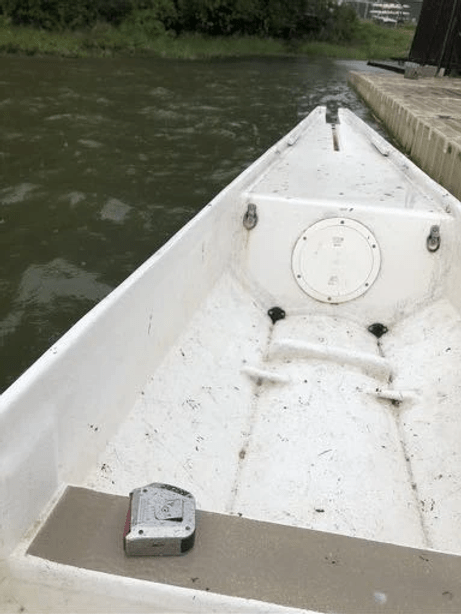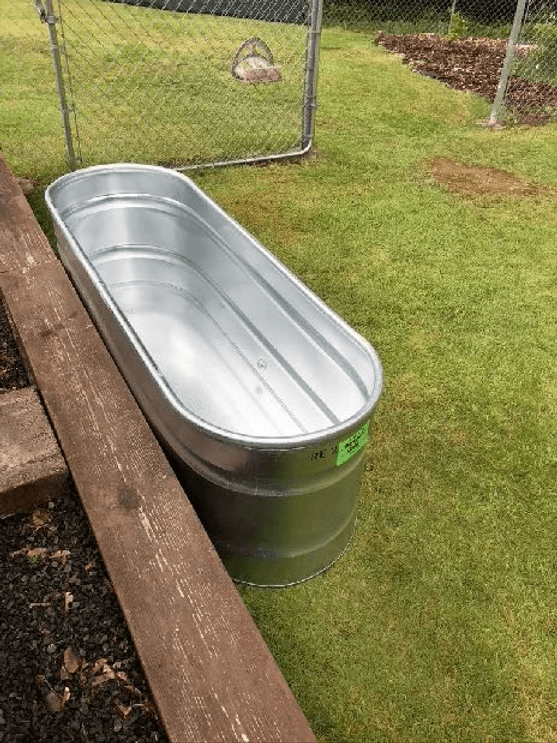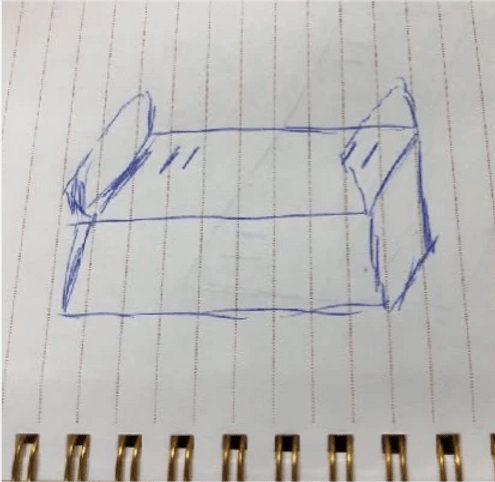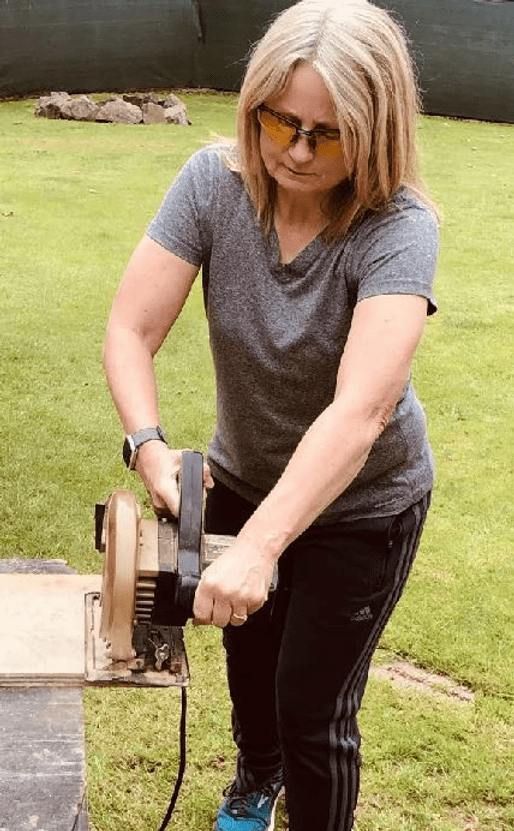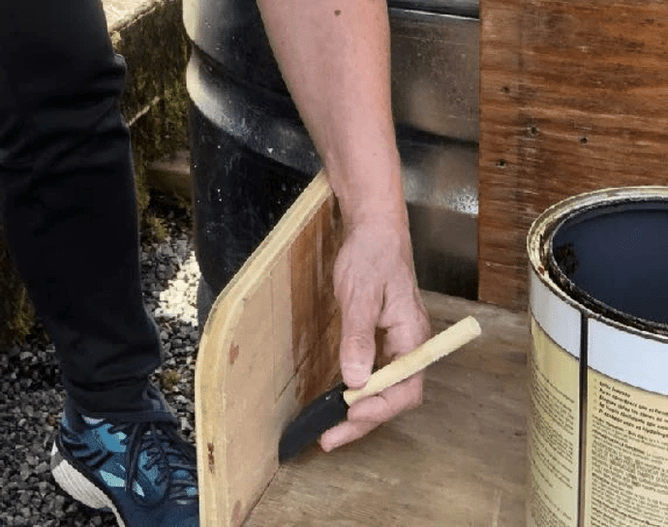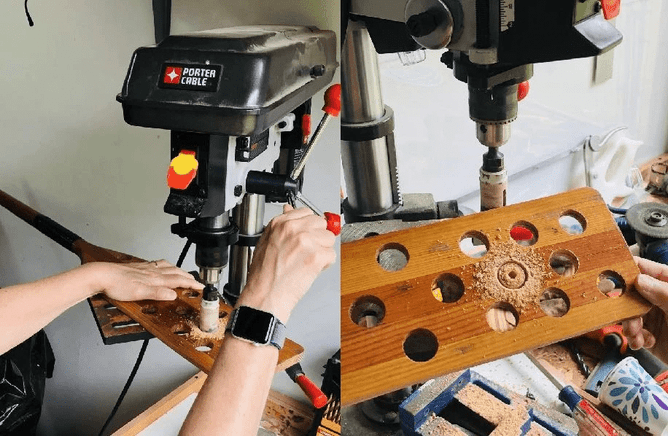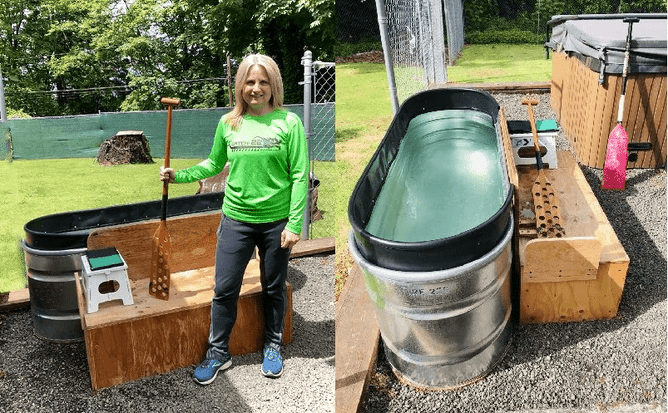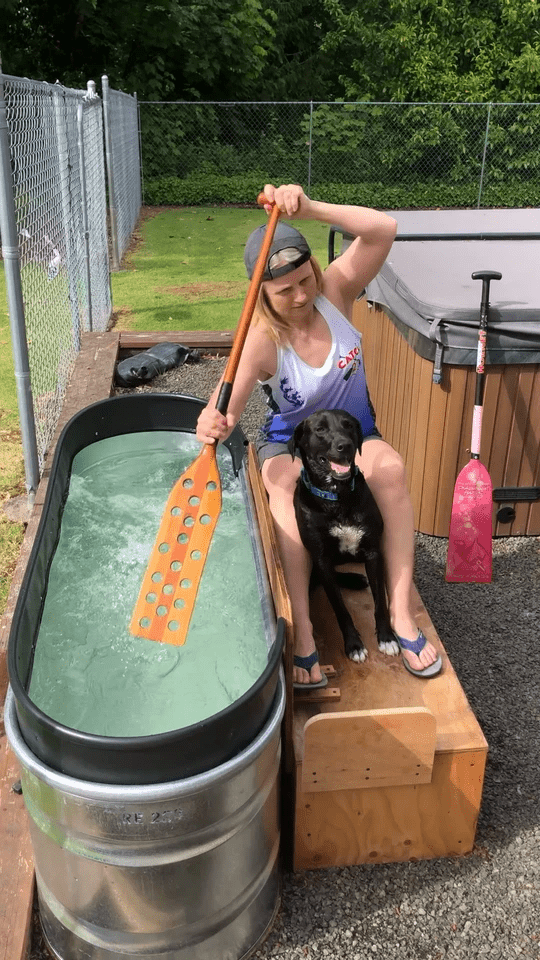Posted on the Hornet website on July 02, 2020
Guest Blog Post by Laura Thornquist
Like every single dragon boat paddler I know, I was feeling very depressed about not being able to paddle.
Not only was I missing my teammates, but also the feel of my paddle moving through the water. Paddling is a very meditative experience. The rhythmic movement of the stroke and the need to quiet your mind and focus solely on the present. There is no other activity in the world that fills this void for me.
Along with several of my teammates, I am a breast cancer survivor. Dragon boat paddling has become an integral part of my life. It’s a sport that helps survivors in so many ways. My team, Catch-22, in Vancouver, Washington, was really building momentum and expanding out outreach to survivors this year. We have been creative and are still finding ways to meet survivors and get them excited about trying the sport.
I started researching ways that I could build a device to paddle in at home. There was not much out there, only expensive huge systems built for indoor training.
I saw people sitting on the sides of swimming pools and docks trying to paddle. This works in a pinch, but you can’t paddle with good form doing it that way. I didn’t want to build new habits that would be hard to break later.
I decided to try and just build a simple tank system. At first I really over thought it and worried about the water movement in the tank, thinking I might need to build some type of contraption to keep the water moving in a circle. I scrapped that idea and decided to keep is basic. I could always modify it later if needed. I went down to the lake and took some measurements from a dragon boat. I wanted to know the approximate height of the bench and the length to the foot pegs.
1. I went down to the lake and took some measurements from a dragon boat. I wanted to know the approximate height of the bench and the length to the foot pegs.
2. I looked around for a suitable tank. I Decided to go for a simple 6 ft tank from my local feed store.
3. I enlisted my husband Mike to help me build a paddling platform. I drew a terrible picture of the basic idea!
4. Time to use power tools!!
5. Once the box was finished, it needed some varnish to protect it from the elements.
6. Wow, it didn’t take long to figure out that using a regular paddle wasn’t going to work well. Every stroke was a challenge. I grabbed an old damaged wooden paddle and started making some modifications. I kept adding more holes to make the paddling feel more similar to paddling in a real boat.
7. After several days of experimenting and changing up a few things, I have my tank!
8. It’s working out great for a coaching tool as well. I can really help my paddlers get into the correct position and make corrections on their stroke. My good friend Paula put on her mask and came up for the first coaching session. She and I are preparing to go to New Zealand with our team in 2022 to participate in the next International Breast Cancer Survivors race.
9. My back yard is a happy place now! Luke and I turn on some music and paddle away. I think I can survive until we can get back in the boat. We are all waiting for that day. I know it will be soon!
Do you want to know more about how to make your own water tank? Contact us at info@hornetwatersports.com
